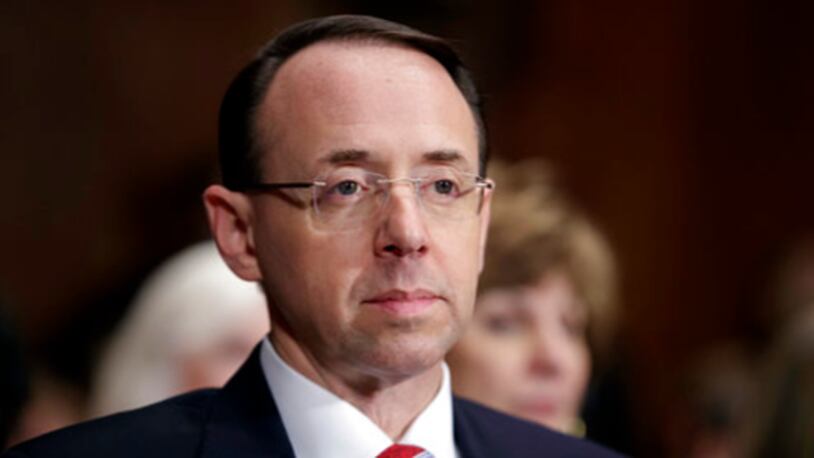As the news broke on Comey’s firing, Democrats renewed their call for a special prosecutor to take over the investigation of Russian meddling in the election.
What is a special prosecutor, what does he or she do and why do Democrats want one? Here’s a look at who would appoint one, what they do and what happens next.
What is a special prosecutor?
A special prosecutor – the are called special counsel now – is a lawyer appointed to investigate a specific legal case. The person appointed as a special counsel has nearly unlimited means to investigate an issue, and has to answer to virtually no one during the investigation.
“(a) An individual named as Special Counsel shall be a lawyer with a reputation for integrity and impartial decision making, and with appropriate experience to ensure both that the investigation will be conducted ably, expeditiously and thoroughly, and that investigative and prosecutorial decisions will be supported by an informed understanding of the criminal law and Department of Justice policies. The Special Counsel shall be selected from outside the United States Government. Special Counsels shall agree that their responsibilities as Special Counsel shall take first precedence in their professional lives, and that it may be necessary to devote their full time to the investigation, depending on its complexity and the stage of the investigation.
(b) The Attorney General shall consult with the Assistant Attorney General for Administration to ensure an appropriate method of appointment, and to ensure that a Special Counsel undergoes an appropriate background investigation and a detailed review of ethics and conflicts of interest issues. … “
Where do they come from?
Most often, a special counsel comes from within the Justice Department.
Who appoints a special counsel?
A special counsel could be appointed by either the attorney general, or, in this case as Attorney General Jeff Sessions has recused himself from the Russian interference investigation, the deputy attorney general. The current deputy attorney general is Rod Rosenstein.
Why does the attorney general get to appoint a special counsel?
According to the Code of Federal Regulations (Title 28, Chapter VI, Part 600, Section 600.1):
“The Attorney General, or in cases in which the Attorney General is recused, the Acting Attorney General, will appoint a Special Counsel when he or she determines that criminal investigation of a person or matter is warranted and -
(a) That investigation or prosecution of that person or matter by a United States Attorney's Office or litigating Division of the Department of Justice would present a conflict of interest for the Department or other extraordinary circumstances; and
(b) That under the circumstances, it would be in the public interest to appoint an outside Special Counsel to assume responsibility for the matter.”
What if Rosenstein decides not to appoint a special counsel?
If Rosenstein decides not to appoint a special counsel, then no special counsel will be appointed.
The decision to appoint or not appoint a special counsel is "unreviewable" according to the Code of Federal Regulations.
One thing Rosenstein can do prior to appointing a special counsel is to order the Justice Department to determine whether the appointment of a special counsel would be appropriate. That would mean that a preliminary investigation would take place.
Rosenstein could also pass off the investigation to a special section of the department.
Who decides what a special counsel will investigate?
The attorney general decides what the special counsel is to investigate, and what the jurisdiction of the special counsel will be – meaning what authority they have to investigate and prosecute a crime.
Can the president fire a special prosecutor?
Yes. President Richard M. Nixon fired special prosecutor Archibald Cox after Cox subpoenaed audio tapes of conversations recorded in the White House.
President Ulysses Grant fired a special prosecutor because of “impudence against the president.”
Can anyone else fire him or her?
Yes. The attorney general can remove a special counsel from office.
How long would a special counsel investigation take to complete?
An investigation could take up to nine months, though there is no time frame for one.
What happens when the investigation is over?
When a special counsel has concluded his or her work, the attorney general (or deputy attorney general), will decide if there is enough evidence to prosecute.
Sources: Center for Legal and Economic Studies; The Washington Post; Cornell University Law School;
About the Author
